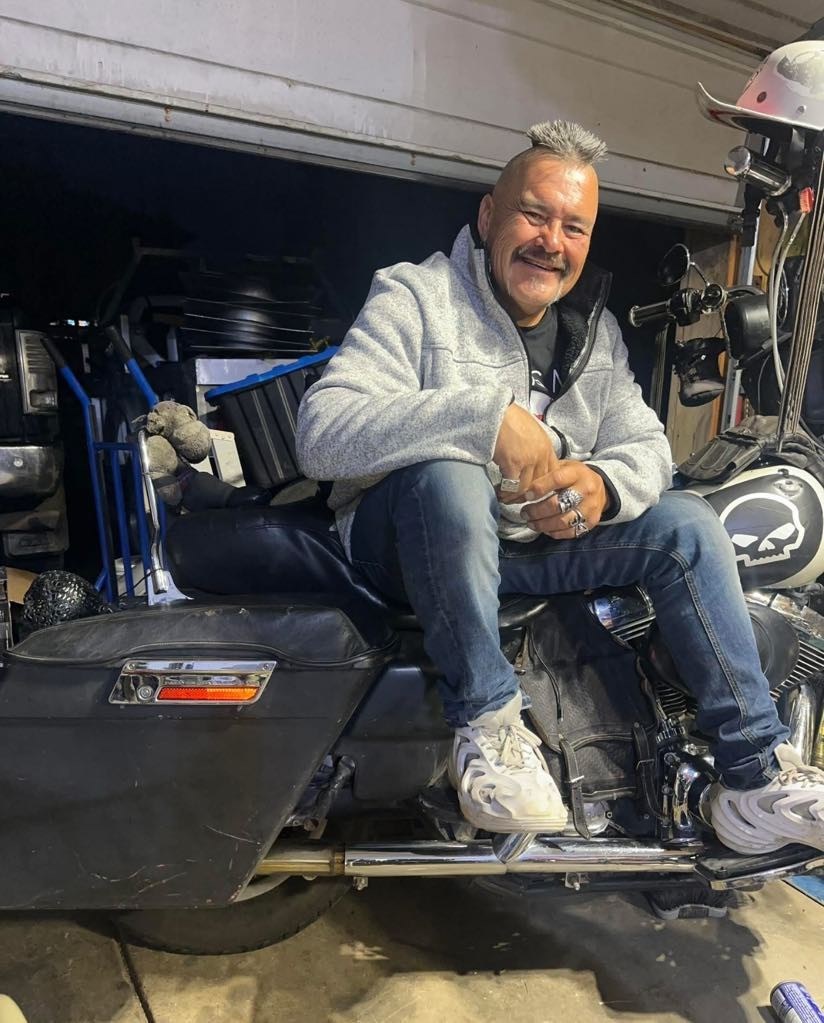COLD LAKE - When Wayne Houle, 54, went on a motorcycle trip through British Columbia in the summer of 2020, he had no idea he would soon face a life-altering diagnosis.
Originally from Elizabeth Métis Settlement and a long-time Cold Lake resident, Houle has worn many hats - public works director, fire chief, and director of emergency management. But none of those roles prepared him for the fight of his life.
“I was on a motorcycle trip one summer . . . and I had some complications, so I went to the hospital in Revelstoke and they didn't really find anything,” Houle recalled. “When I came home, I didn't do a follow-up or anything with it, but I ended up having renal cell carcinoma (RCC) in my left kidney - stage four.”
The diagnosis didn’t come until months later. “It wasn't until February of 2021. When I was diagnosed with that."
Houle was connected with specialists at the Cross Cancer Institute in Edmonton. “I got teamed up with a group out of the Cross Cancer Institute in Edmonton, and we looked up having my kidney removed.”
After a long wait, “about eight months or something to get a biopsy,” his diagnosis was confirmed. But before the surgery could happen, a new CT scan revealed the cancer had spread to his lungs.
Houle was among the first four patients to undergo a new immunotherapy treatment using a drug called Nivolumab, developed by the research team at the Cross Cancer Institute.
The news was devastating.
“How she [the doctor] said it was, ‘You have stage four renal cell carcinoma in your left kidney’,” he realled. “And I had to get my things in order. I had seven months. So, this is how it was delivered. And it was during COVID, so it was kind of rough because I was allowed one person on my visiting list.”
Despite a grim prognosis, Houle remained committed to his treatment, completing his final session on June 26, 2024, just three days before his birthday.
But the disease didn’t stop spreading. “It didn't stop at my lungs either. I was on a motorcycle ride to B.C. and I had to stop for an MRI to do a checkup. And during that time, they found a lesion on my brain,” Houle said. “I just got my kidney removed. So, we're doing a lung treatment and then they found it on my brain.”
Despite the uphill battle, he has since had a breakthrough - “It's gone. It's clean.”
One of the toughest challenges for Houle was being told he could no longer operate vehicles, a significant loss for someone who had spent his life driving equipment, snowmobiles, and motorcycles.
The emotional toll was just as heavy. “I used to think anxiety was not a thing. And at that point I learned what anxiety was. I used a little bit of cannabis to kind of deal with that, which really helped,” he said. “But in my mental state, I guess I looked back and I thought that I was OK with whatever happened.”
Given a seven-month prognosis, Houle chose to participate in clinical trials, seeing it as a chance worth taking.
And though he faced death head-on, he found purpose in helping others.
“If I got another month or a couple weeks or a few months or any time more, then I thought it would be a bonus. And otherwise, I was ready for whatever happened. And my son was the same,” he said. “We had a few talks, and we knew, I raised him to know that right from the beginning we're born to die. We're dying from the day we're born.”
Houle’s mindset was simple, “To be positive. To find something positive out of a situation, no matter how terrible it is.”
After removing negativity from his life, Houle's resilience stood out, his oncologist called him one of the most optimistic patients he had ever met and personally shook his hand in recognition.
“That was huge just for my emotional support,” Houle said.
Houle wants people to know that “with a lot of the new modern medicines and treatments that they have, that cancer is no longer a death sentence.”
He says staying hopeful made all the difference.
“Things have really advanced, but people have to stay positive. . . The small cancer clinic that we have at Bonnyville is an amazing facility,” he added.
Houle witnessed others who lost hope along the way.
“I try to speak to them on a positive level, that no it's not [over]. And it's your battle. You need to fight it. As much as mine is my battle. And no one can fight it for me,” he said.
Houle now spreads encouragement wherever he can.
“Believe in yourself. Be positive, you got this. It's all yours to fight and you're a winner,” he said. “I made some shirts that says, ‘Hey cancer, your tactics don't work on warriors’.”
His message is clear, “Be a warrior. Fight your battle.”



